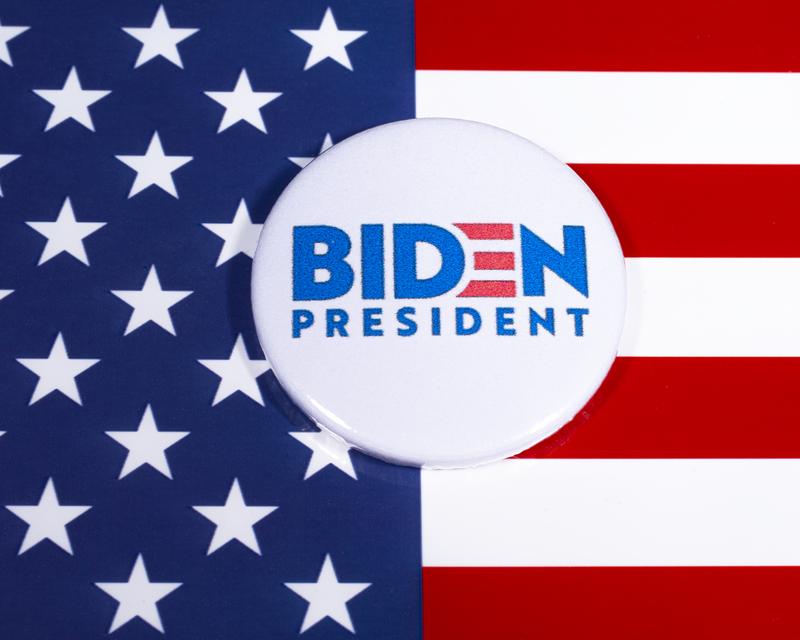It’s official: Joe Biden will be inaugurated as the 46th President on January 20, 2021. With the new change in command will come sweeping reform in a variety of areas, including higher education, no doubt. So, what can we expect from the new President?
Before we get to President-elect Biden’s plan, it’s important to note that the Trump Administration just made student loan changes for 2021. The Department of Education announced that it will extend the student loan forbearance period, the pause in interest accrual, and collections activity, to January 31, 2021. These changes initially went into effect at the start of the pandemic, and it’s possible that the Biden administration will extend this period after January 31 as well.
For Biden, the issue of student loan debt has become even more complicated with the COVID-19 pandemic, though. Already, many Democrats were advocating for free tuition at public colleges as well as eliminating all student loan debt, but the economic and financial implications of Coronavirus have made the calls for drastic measures even more complex.
• Double the maximum Pell Grant amount as well as significantly increase the number of students who could qualify for the program, thereby reducing the amount of student loan debt students must take on to pay for college.
• Halve payments toward student loans to 5% of discretionary income and forgiving the remaining balance after 20 years if the borrower has made payments responsibly.
• Streamline public service loan forgiveness by providing borrowers with $10,000 in student debt relief for every year they serve in a national or community service role after graduation.
At a press conference in November, President-elect Biden was asked if student loan forgiveness is part of his economic recovery considering the pandemic. He responded: “It does figure in my plan,” and also pointed to the COVID-19 relief package pushed by the House Democrats.
In terms of issuing an executive order to help alleviate student loan debt, it appears that the Biden administration will attempt to pass reform through the legislative branch. Stef Feldman, his campaign’s national policy director, said:
“Vice President Biden has embraced the proposal, which I actually think was originally put forward by [Democratic] Senator [Elizabeth] Warren. In the midst of this crisis, she proposed legislation to ensure that we cancel $10,000 of debt for every student debt holder immediately, given the moment we are in. And that’s the proposal that Vice President Biden has embraced.”
He has also said he would cancel all student loan debt for those making $125,000 or less per year and graduated from a public college or a historically Black college or university (HBCUs), according to CNBC.
Several Senators, like Chuck Schumer of New York, are pressuring Biden to cancel Student Loan Debt on Day 1 of his Presidency via Executive Order:
Student Loans on the Campaign Trail
From the start of his Presidential campaign, Biden made it clear that he wanted to provide greater access to a college education with minimal student loan debt. He hoped to achieve that in a variety of ways: • Make college tuition free for all families with an annual salary of $125,000 or below.• Double the maximum Pell Grant amount as well as significantly increase the number of students who could qualify for the program, thereby reducing the amount of student loan debt students must take on to pay for college.
• Streamline public service loan forgiveness by providing borrowers with $10,000 in student debt relief for every year they serve in a national or community service role after graduation.
Student Loan Discussions Post-Election
Since his win over President Trump, President-elect Biden has had many discussions around the pandemic and the economic repercussions. Many Democrats believe that student debt forgiveness is essential to help alleviate the weak economy; and according to Inside Higher Ed, Biden is thinking about it.Specifically, Schumer is asking President-elect Biden to eliminate $50,000 in student loan debt per borrower through an executive order, and he’s not the only one. About 230 organizations, like Americans for Financial Reform and the NAACP, are asking the same, reports CNBC. However, many experts agree that making such a move without going through the legislative branch will be a huge blow to Congress, weakening the brand new relationship between the legislative and executive branches just as Biden takes office. It could also lead to legal action. Needless to say, President-elect Biden has much to consider as he prepares to take office in January. Though, one thing is for certain: there WILL be some type of impact to student loans. It’s just a matter of how much borrowers can expect to be unloaded from their burden.President-elect Biden can #CancelStudentDebt on Day 1.
— Chuck Schumer (@SenSchumer) December 7, 2020
For millions of Americans, student loan debt has become an impossible burden.
I’m proud to stand with Reps-elect @JamaalBowmanNY, @MondaireJones, and @RitchieTorres to work to #CancelStudentDebt.

